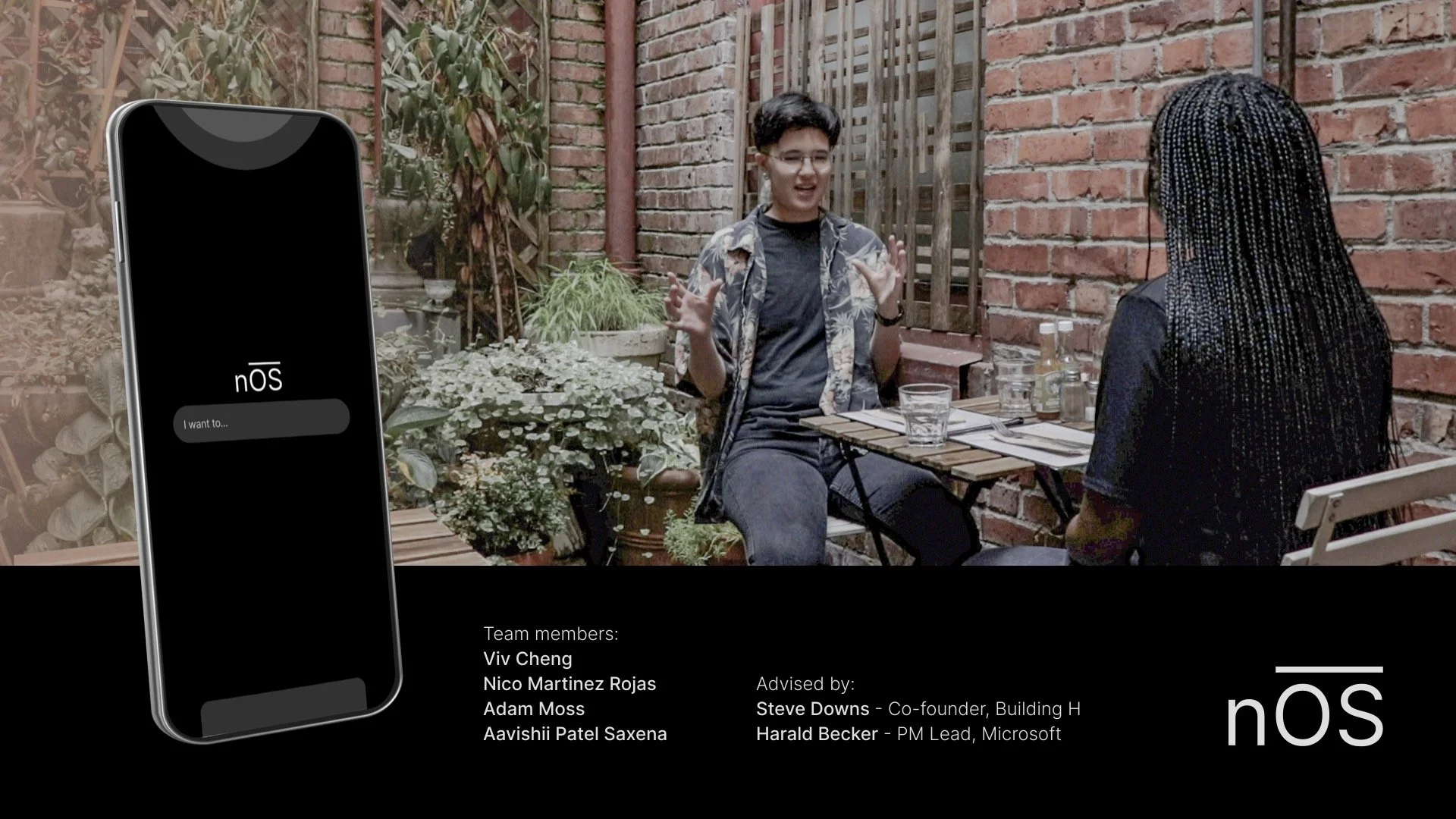Speculative Design
We envision a world where there are engaging products and services that intentionally make healthy behaviors easier, more attractive, and even delightful. We’re less interested in products that prod, cajole or otherwise nag people to do what they don’t want to do — rather we’d like to see products that either lower the barriers to or increase the appeal of healthy behaviors. To give some idea of what these sorts of products and services could look like, we’ve sponsored speculative design work that envisions new products aimed at making everyday routines healthier. (You can also see examples of existing products and services that share some of these qualities on our builders page.)
We’ve undertaken five projects with teams of students from the Department of Human-Centered Design and Engineering and the Master of Human-Computer Interaction and Design at the University of Washington. In each case, the students took a prompt from us at Building H and completed a speculative design project that involved user research, ideation, the design of a service, user feedback and ultimately, demos of service in action.
Speculative Design Projects
Social Grocer: Fill Your Cart, Feed Your Friendships
Online grocery delivery services are convenient, but could they be designed to foster healthier diets? And how could we make them more social?
SOLIS: Optimizing the Dorm Environment for Sleep
What if we treated sleep as if it were really, really important? (It is, FYI). What if a college dorm room were designed to help students get healthy sleep?
nOS: A People-Centered Operating System
What if our phones, instead of being organized by endless screens of apps, were optimized instead for human connection. What if they helped you nurture the most important relationships in your life?
deliz: Fast, Healthy dinners at home
Cooking dinner at home has multiple benefits — meals are typically healthier, it requires some physical activity, and it can even be very social. But Americans do it less and less — and delivery apps make the (often less healthy) alternatives even easier. So what could be done to make cooking easier and more delightful? That’s the challenge we gave this team of UW students.
Atlas: Mobility-as-a-Service
The least healthy form of transportation — driving a car (or being driven) is typically the most convenient. But what if the experience of using other, more active modes, like walking, biking or using public transit, could be even better? This group of students developed a speculative design of a Mobilty-as-a-Service (MaaS) offering that simplifies and integrates different mobility options.





